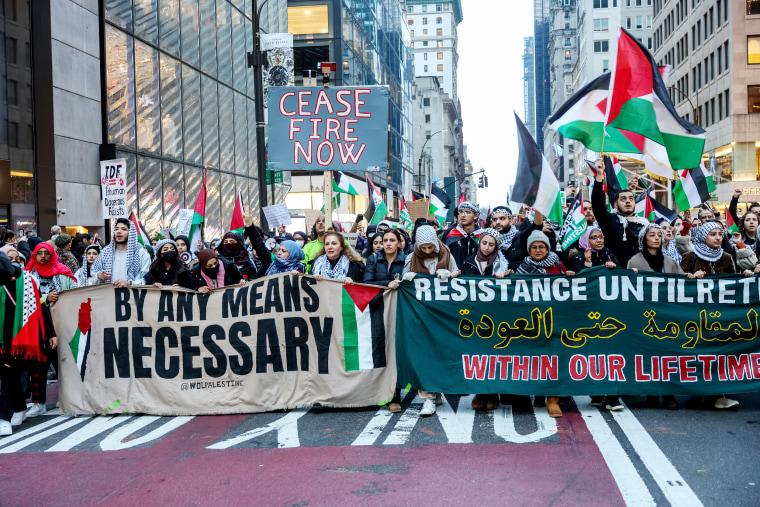In an unprecedented incident during the Vuelta a Espa√±a, Pro-Palestine activists made headlines by hacking into the official race radio communication systems, broadcasting slogans and songs in support of their cause. The audacious act, which occurred during one of cycling’s most prestigious events, drew immediate attention and sparked widespread debate about the intersection of sports and activism. With tensions surrounding the Israeli-Palestinian conflict intensifying, this unexpected intrusion into the velodrome of cycling not only disrupted the race but also highlighted the growing trend of using high-profile platforms to amplify political messages. As the cycling world reacts, questions are raised about security, freedom of expression, and the increasingly politicized nature of global sporting events.
Activism Takes Center Stage at Vuelta a España Amidst Communication Hacking Incident
The Vuelta a Espa√±a witnessed an unprecedented incident as pro-Palestine activists managed to takeover the official race radio communications, amplifying their cause during one of the event’s key stages. Participants and fans alike were greeted with slogans and songs advocating for Palestinian rights, disrupting the standard race commentary. The unexpected broadcast lasted several minutes, catching both organizers and riders off-guard, and has since ignited a broader conversation around the intersection of sport and political activism. Listeners reported phrases like “Free Palestine!” echoing through the airwaves, turning what is typically a competitive atmosphere into a platform for social issues.
Authorities quickly moved to investigate the hacking of the communication systems, which raised concerns about security protocols within such a high-profile event. Nevertheless, the incident has not only brought attention to the activists’ message but also shed light on the increasing trend of protests finding their way into major sporting events. Many are discussing the implications of such actions, debating whether they dilute the essence of competitive sport or raise critical awareness of pressing global issues. The response from the public was mixed, with some applauding the bold move while others condemned it for disrupting a beloved cycling tradition. In light of this event, discussions around race integrity and political statements in sports continue to grow.
Examining the Motivations Behind Pro-Palestine Messages in Global Sporting Events
The recent incident at the Vuelta a España, where pro-Palestine activists managed to hijack the official race radio to emit their messages, has sparked a wave of discussions about the intersection of sport, activism, and global politics. These actions are reflective of a broader trend where sporting events serve as platforms for expressing solidarity and raising awareness on social issues. By using high-profile events to broadcast their slogans and songs, activists aim to garner international attention and engage a wider audience, often leveraging the visibility and reach of such events to amplify their message. The merging of sports with political advocacy presents an interesting dynamic, where the racecourse is transformed from a mere arena of competition into a stage for activism.
This bold approach raises questions about the motivations behind such actions and the role of sporting events as vehicles for political discourse. Key motivations behind the pro-Palestine messages include:
- Raising Awareness: Utilizing the global platform of the Vuelta a España to inform spectators about the Palestinian cause.
- Solidarity: Showing support for those affected by the ongoing conflict in Palestine.
- Challenging Narratives: Disrupting conventional representations of events to promote alternative views.
- Engagement: Encouraging critical discussions among fans and participants regarding the socio-political context surrounding the event.
Ensuring Security in Sports Broadcasting: Recommendations for Preventing Future Disruptions
The recent disruption during the Vuelta a Espa√±a highlights the urgent need for enhanced security measures within sports broadcasting. Hackers were able to manipulate communication systems, resulting in Pro-Palestine activists hijacking the official race radio with provocative slogans and songs. This incident not only tarnishes the integrity of the event but undermines the safety of all participants and viewers. It’s crucial for governing bodies and broadcasting networks to reevaluate their cybersecurity protocols to prevent similar incidents from happening in the future.
To bolster security in sports broadcasting, stakeholders should consider implementing the following recommendations:
- Regular Cybersecurity Audits: Conducting comprehensive audits to identify vulnerabilities in communication systems.
- Real-Time Monitoring: Employing advanced monitoring tools to detect and respond to unauthorized access or anomalies swiftly.
- Training and Awareness: Providing training for staff on cybersecurity best practices to reduce human error as an entry point for attacks.
- Multi-Factor Authentication: Requiring multi-factor authentication for accessing broadcasting systems to add an additional layer of security.
| Measure | Description |
|---|---|
| Firewall Enhancements | Upgrading firewalls to resist sophisticated attacks. |
| Incident Response Plans | Creating detailed plans to manage potential disruptions effectively. |
In Retrospect
In conclusion, the unexpected hacking of communication systems during the Vuelta a España has spotlighted the intersection of sport and political activism. Pro-Palestine activists used the platform to broadcast their message, demonstrating the increasing ability of grassroots movements to infiltrate mainstream events, albeit in a controversial manner. As authorities investigate the breach, the incident raises important questions about the role of activism in sports and the lengths to which individuals will go to draw attention to their causes. The implications of this event will likely resonate beyond the cycling community, serving as a reminder of the power of voice-both on and off the racecourse. As the Vuelta continues, stakeholders across the spectrum will be watching closely, prepared for the potential ripple effects of this unprecedented act.











